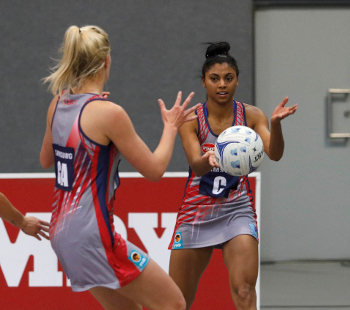 Kovsies Netball has been unbeaten this year.
|
The University of the Free State (UFS) netball team is hoping to continue its good performance in the Varsity Sport series against the North-West University on Monday 12 October 2015 at 19:00, in order to reach the finals for a third consecutive year.
The teams will meet in the Callie Human Centre on the Bloemfontein Campus for a follow-up of last year’s semi-final. Kovsies won that that game in Bloemfontein with a score of 51-45.
If the home team prevails, they will be hosting a final for the first time.
The Kovsies, who were unbeaten this year, and finished at the top of the log, were the champions in the first two seasons, but had to play away from home in the final against Pukke in 2013 and Tuks in 2014.
The last league match they lost against Pukke was in 2013. The score in Pretoria was 47-60 in favour of the Pukke.
Many of the clashes between the teams have been very close games. Last year, there was a 45-45 draw in Potchefstroom.
In the first round of 2015 between Kovsies and Pukke in Bloemfontein, the UFS won by 47-38.
In their final league match in Stellenbosch on Monday 5 October 2015, Kovsies won against Maties by 41-33, while the Pukke, who ended fourth on the log, defeated the Madibaz 65-32 in Potchefstroom.
In the other semi-final on Monday, Tukkies and Maties, second and third respectively on the log, will play against each other in Pretoria. This match will be broadcast live on a big screen in the Callie Human Centre on Monday.
The Kovsie captain, Karla Mostert, who will be playing for Bath in England next year, is currently ahead on votes for Player of the Series. Last year, she was also Player of the Series. Fans may vote for her on the Varsity Sport Facebook page at https://www.facebook.com/varsitysportsSA.